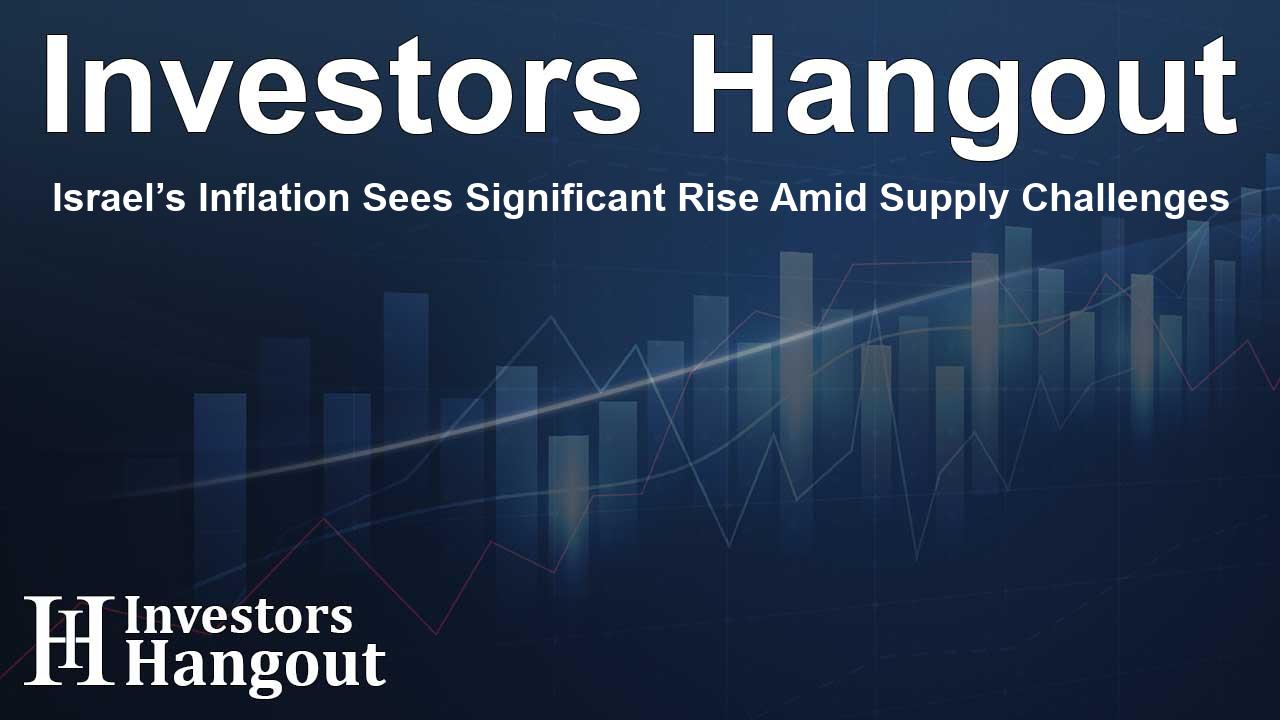Israel’s Inflation Sees Significant Rise Amid Supply Challenges

Understanding Israel's Inflation Surge
The recent rise in inflation in Israel has raised eyebrows as it hit 3.6% in August, marking the highest rate observed in nearly a year. This news comes from the Central Bureau of Statistics, indicating how economic factors and geopolitical intricacies are influencing the country's financial landscape.
Factors Accelerating Inflation
The increase from 3.2% in July to 3.6% in August was not only unexpected but also exceeded analysts' forecasts which anticipated a static rate. This significant jump has drawn attention to various causes, with government officials pointing primarily to supply chain disruptions stemming from recent conflicts.
Consumer Price Index Contributions
The consumer price index (CPI), a key measure of inflation, rose substantially by 0.9% from July to August. Influential contributors to this rise included increased costs associated with fresh produce, food, housing, transportation, education, and entertainment. These sectors experienced particularly sharp price hikes, overshadowing declines in areas like clothing and footwear, telecommunications, and furniture, which were unable to offset the rising costs.
Implications on Monetary Policy
The implications of these inflationary pressures are significant for the Bank of Israel. After a moment of recalibration early in the year with a cut to the benchmark interest rate in January, the central bank has opted to maintain the rate at subsequent meetings. This trend began in February and continued through to August as they grappled with ongoing geopolitical tensions and rising price pressures.
Future Rate Decisions
The next monetary policy decision is scheduled for October 9, and there is a prevailing sentiment among Israeli central bankers that further rate cuts are unlikely until 2025. The anticipation around future monetary policy remains focused on how these inflation trends will influence decisions moving forward and their potential impacts on the economy.
Economic Outlook
The situation paints a complex picture of Israel's economic environment. While the inflation rate is above the desired target range of 1-3%, it highlights the balancing act that the central bank faces—maintaining economic stability while addressing unexpected spikes in prices. Continued observation of both domestic and international factors will be crucial in navigating the road ahead.
Frequently Asked Questions
What caused the rise in Israel's inflation rate in August?
The inflation rate rose due to supply chain issues related to geopolitical tensions, leading to higher costs in various sectors, including food and housing.
What was the consumer price index change in August?
The consumer price index increased by 0.9% in August compared to July, fueled by rising prices in several essential categories.
What is the Bank of Israel's stance on interest rates?
The Bank of Israel has kept its benchmark interest rate unchanged amidst rising inflation, with expectations of no rate cuts until 2025.
How does this inflation impact everyday life in Israel?
The rise in inflation reflects higher costs for consumers, affecting living expenses and potentially altering consumer spending behavior.
What could be the long-term effects of these inflation trends?
Long-term effects may include tightened monetary policies that could influence economic growth, investment, and overall financial stability in the region.
About Investors Hangout
Investors Hangout is a leading online stock forum for financial discussion and learning, offering a wide range of free tools and resources. It draws in traders of all levels, who exchange market knowledge, investigate trading tactics, and keep an eye on industry developments in real time. Featuring financial articles, stock message boards, quotes, charts, company profiles, and live news updates. Through cooperative learning and a wealth of informational resources, it helps users from novices creating their first portfolios to experts honing their techniques. Join Investors Hangout today: https://investorshangout.com/
Disclaimer: The content of this article is solely for general informational purposes only; it does not represent legal, financial, or investment advice. Investors Hangout does not offer financial advice; the author is not a licensed financial advisor. Consult a qualified advisor before making any financial or investment decisions based on this article. The author's interpretation of publicly available data shapes the opinions presented here; as a result, they should not be taken as advice to purchase, sell, or hold any securities mentioned or any other investments. The author does not guarantee the accuracy, completeness, or timeliness of any material, providing it "as is." Information and market conditions may change; past performance is not indicative of future outcomes. If any of the material offered here is inaccurate, please contact us for corrections.